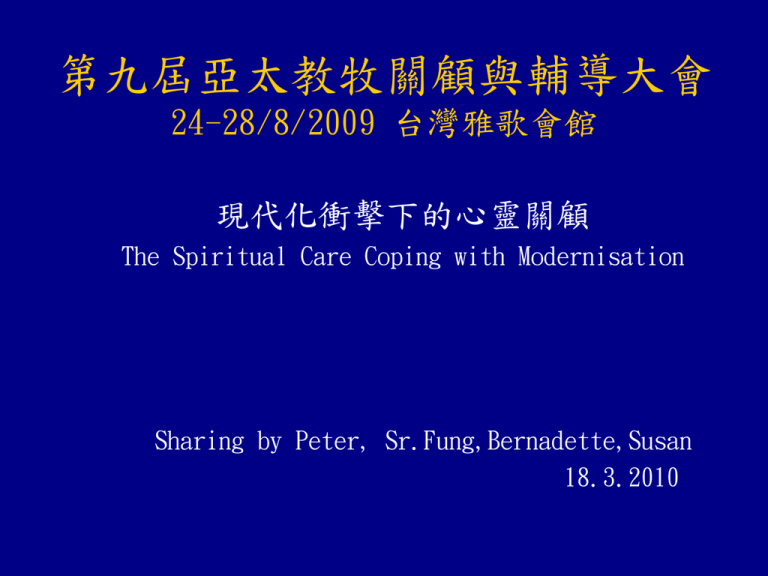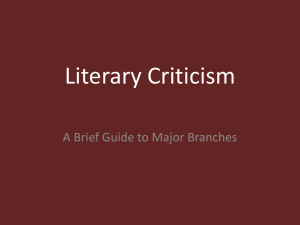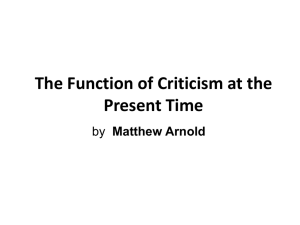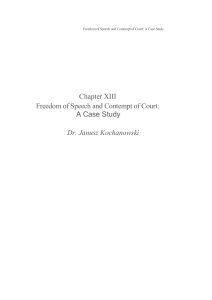2) 主題分享
advertisement

第九屆亞太教牧關顧與輔導大會 24-28/8/2009 台灣雅歌會館 現代化衝擊下的心靈關顧 The Spiritual Care Coping with Modernisation Sharing by Peter, Sr.Fung,Bernadette,Susan 18.3.2010 現代化衝擊下的心靈關顧 The Spiritual Care Coping with Modernisation 一) 從王榮義牧師的「關顧自殺者的心靈」 專題演講中,提出以下幾點值得關注 : 1) Non-anxious 不擔憂 2) Non-judgmental 不批判 3) Non-demanding 不要求 4) Awaken : Listen to the heart 喚醒:聆聽內心世界 1) Non-anxious 不擔憂 1.1) The temptation for many caregivers who are anxious is to try to silence their expressions of pain with a tumble of shallow platitudes or with a fevered rush to comfort. 由於牧靈工作者擔憂自殺者會自暴自棄,因 而不敢讓他們表達內心的痛苦,又或會急於 安慰他們。 This only communicates lack of understanding and leaves the suffering person feeling lonely and abandoned. 這種溝通障礙,反而令自殺者感到孤獨及被 離棄。 Non-anxious 不擔憂 1.2) The caregiver’s calm confidence makes it clear that he/she is not overwhelmed, and that there are possible options for the patient. 牧靈工作者鎮定而富自信的表現,有助自 殺者看到尋求其他出路的可行性。 2) Non-judgmental不批判 2.1) A natural response to attempted suicide is often a strong feeling of judgment, and pastoral caregivers sometimes are no exception. 對於自殺的行為,人們的自然反應通常是帶 有強烈的批判性,而身為牧靈工作者也不能 幸免。 Non-judgmental 不批判 2.2) Self-hatred and pounding self-criticism already occupy their thoughts, and they expect it from others. Any negative feelings that caregiver convey will only provide confirmation that they are unlovable, unworthy of kindness and respect, and shameful in countless ways. 自殺者的內心已充滿許多自我憎恨、自我批判 的情緒,亦相信別人也會憎恨及批評自己。故 此牧靈工作者帶給自殺者任何負面的情緒,只 會令自殺者認定自己不可愛、不值得尊重及非 常慚愧。 Non-judgmental 不批判 2.3) The Question, “Why did you do this?” is experienced as judgmental and blaming. 「你為什麼這樣做?」 這問題已帶有批判的意思。 2.4) But the statement, “I would like to understand what you were feeling that led you to hurt yourself,” can be invitational and provide an opening for a deeper connection. 「我想了解一下,你內心有什麼感受令你 會傷害自己?」這可與自殺者有更深入的 連繫 。 3)Non-demanding不要求 3.1) A non-demanding presence is one who where ongoing care is offered without strings attached, where care is unconditional and does not require any particular action on the part of the person in pain. 不要被太多框框所阻礙,也不要硬以為應 為自殺者在痛苦中做些什麼。 Non-demanding不要求 3.2) Sometimes caregivers unintentionally communicate demands such as, “Only if you break out of this darkness will I continue to care for you,” or “if you follow my orders correctly then I will continue to be your caregiver. If not, I will abandon you.” 有時,牧靈工作者好想自殺者快些站起來, 會不自覺地去要求,例如:「你若能從黑暗 走出來,我才會繼續來關顧你」,或者: 「如果你跟從我的說話,我才會繼續來關顧 你,若不然,我會放棄你」。 Non-demanding不要求 3.3) Suicide is an occasion for enormous shame, guilt, and self-hatred; acceptance and the promise of a steadfast presence is healing at a very deep level. 關顧自殺者的需要,給予接納及承諾信守 的陪伴,是一個深層的醫治。 4) Awaken : Listen to the heart 喚醒:聆聽內心世界 4.1) Just to feel it, to accompany it. Whenever it feels uncomfortable, be with it, because love is willing to accompany, but not to suppress, let along to persuade or to convince. 用心去陪伴,不壓制或不說服。 二) Conclusion 總結 2.1) Suicide is a big issue and challenge to our church mission today. We cannot merely use the words of the Bible to deal with the pain and contradiction within those who live in this complicate modern society and stuck in deep emotional and spiritual struggle. 面對自殺的行為,不能單憑用聖言去處理自殺者的 痛苦及矛盾。 2.2) We have to listen to their heart carefully by listen to people’s heart with love of God and the attitude of non-anxious, nonjudgmental and non-demanding, the wounded heart will be understood and gradually healed. 我們需懷有基督的愛,以不擔憂、不 批判、不要求的態度,去聆聽受傷的 心靈,讓他們逐步得到醫治。 四位末日騎士 Four Horsemen of the Apocalpe •John Gottman是一位著名的婚姻研究者。 •他從四種破壞婚姻的表現-「四位末日騎士」, 觀察夫婦相處之道。 1) 批評 Criticism 2) 蔑視 Contempt 3) 自衛和反擊 defensiveness 4) 冷漠 Stonewalling 四位末日騎士 Four Horseman of the Apocalpe •以下是由夫婦相處之道延伸到人與人的相 處及牧靈團體的相處之道。 •期盼透過例子,讓大家更容易明白及掌握。 以下例子如有類同,則屬巧合,敬請見諒。 現代人的婚姻 自由戀愛,拍拖及結婚均是由二人在自 由意志下選擇伴侶。 婚後出現(負面): 吵鬧,互相攻擊,冷戰..... 後果 : 離婚或雙方及下一代受極大的傷害 團 隊 問 題 牧靈部的團隊(Team)是由管理層安排,是[盲 婚唖嫁]方式組成,不是由你選擇伙伴。 因此同樣產生很多冷戰,爭吵,甚至互相指責。 1) 批評 Criticism •今天早上梁太來電,她先生住係本院A9 已經10天,投訴牧靈部沒有探過他,個 間房係你負責,梁生來咗十日你都無探 佢,你咁樣唔啱架喎? • 你會如何回應? 批評 Criticism •這就所謂「對人不對事」; •對個人性格的不滿及抱怨; •造成被批評的一方感到人身攻擊。 •例:「為何你總是不把我吩咐的放在心上 呢?我不知已叫你多少次,每天返來都要這 樣做。」 2) 蔑視 Contempt •今朝梁太來電,她老公住係本院己經10 天,她說牧靈部沒有探過他。個間房係 你負責,你成日都係咁,成日都唔探D 非教友,我都好懷疑你的探訪能力喎。 • 你會如何回應? 蔑視 Contempt •當批評沒有停止,對另一方的負面評價 及想法就會增加,就會升級至蔑視對方。 •例:這種東西你也想得出,可見你有 多麼好的家教啊! 3) 自衛和反擊 Defensiveness 你有冇攪錯,我幾時冇探非教友,你好叻 咩,記唔記得兩個月前本堂神父指名道 姓話你冇探亞芬姐,有口話人冇口話自 己,去上頭告我呀笨。 • 你會如何回應? 自衛和反擊 Defensiveness •受攻擊的一方當然會感到傷害,會把內 心的憤恨化為自衛和反擊。 •例:自衛--我就是這樣的了, 你一早都已經知架? 反擊--看你的臭脾氣,也比我好 不上多少呢? 4) 冷漠 Stonewalling •你第日牧靈工作有乜困難,最好就自己吞 咗佢,唔好問我。 • 作為同事的你,聽到時你的感受如何? • 你會如何回應? 冷漠 Stonewalling •就是拒人於千里,謝絕溝通。 •例:當這出現在夫婦當中,可代表彼此 的愛已轉淡,兩人的關係已失了感情,對 方的一切己經跟你沒有關係了。 •在朋友中亦是一樣,當雙方都不願再溝 通的話,大家的關係亦變得疏離,沒有關 係了。 同樣, 如果牧靈部有上述的情況: 1) 批評 Criticism 2) 蔑視 Contempt 3) 自衛和反擊 Defensiveness 4) 冷漠 Stonewalling 後果 : 不能[履行使命] ; 把[牧靈]精神破壞; 同事間的關係亦被破壞; 相反了[基督所顯示---愛]。 關懷者的自我探索與成長 一)活動 1.1) 玩法:以下問題,如果你回答「不是」的話, 就請你坐下 > 你的工作是對人的。 > 你的工作是需要用心聆聽的。 > 你的工作是有意義的。 > 你的工作是沒有壓力的。 關懷者的自我探索與成長 1.2) 活動結論: 站著的恭喜你,因為你好有可能會Burnout。原 因是我們的工作是對人的,是需要付出心力的 及具有意義的,特別是工作過度及缺乏支持, 是易於使人耗盡,當一切將你燃燒淨盡時,使 你「倒下來」我們稱為Burnout。 關懷者的自我探索與成長 二)Burnout的特徵 2.1) 情緒的控制: 對工作或要做的事不感興 趣,提不起勁。 例如:不想工作或有抑鬱的傾向 2.2) 表現非人性: 對於接觸到的人:視他們為個案、為病人。 冇幽默感:對別人講笑都認真對待。 防衛自己:保護自己,怕被人傷害。 像在曠野中:冇希望、冇支持,好似行極都 行不到綠洲,很痛苦,沒完沒了的。 關懷者的自我探索與成長 三)Burnout的原因 3.1) 使命感太強: ~一定要探完需要探的病人; ~覺得病人需要自己; ~可以將自己私人的時間奉獻,例如超時工作; ~視牧靈工作是天主的召叫,是光榮天主的工作。 ~履行上主的話「我患病,你們來探望了我。」 3.2) 需要被取悅:自我澎脹,“我係邊個…”需要 別人讚許。 3.3) 完美主意:總是要求自己做到最好才罷休。 關懷者的自我探索與成長 四)內在的渴求 4.1) 我們是負傷的治療者:人在受苦,而痛苦的 分擔能使我們有力地邁步向前。 4.2) 自我身心靈需要照顧,才能照顧別人: 我們除了要照顧身體的健康,也要學習接納 和轉化情緒、肯定自己的存在價值,還要聽 心靈的呼聲,讓生命的創造力得到發揮。 4.3) 潛能發展:進修,使自己接受對新事物的剌 激,不默守成規。 關懷者的自我探索與成長 五)自我照顧的方法 5.1) 靜思、反省 5.2) 自我對話:例如做 self-verbatim 5.3) 善用社會資源:同家人或你信任的朋友、 同事分享你的困難、痛苦、不開心…… 5.4) 找自我表達的工具:尋找個人興趣的活動, 例如:畫畫、打波、跳舞…… 5.5) 做運動:做帶氧運動、放鬆運動或按摩…… 以協助自我鬆馳。 關懷者的自我探索與成長 六)總結: 經過以上分享,認知到一點點容易使我們 Burnout 的特徵及原因,在精神上有修正, 能具體地找到自我照顧的方法,好使我們 在牧靈工作上更健康地實踐使命。 謝 謝!











